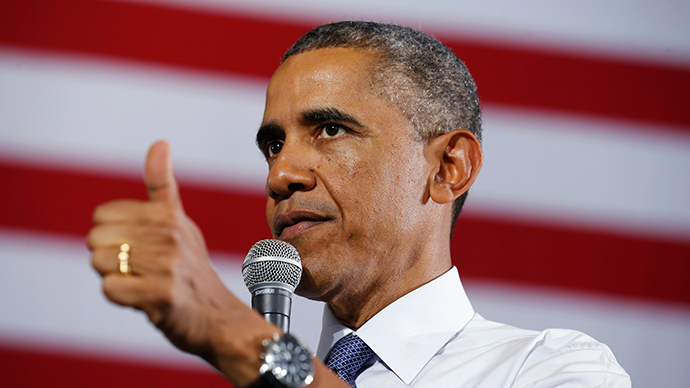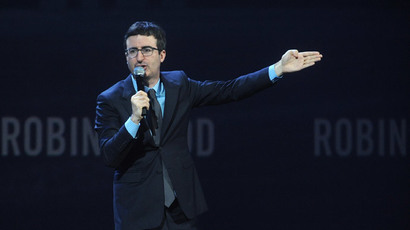Obama ‘expects’ FCC to preserve ‘net neutrality’

The Federal Communication Commission is an independent agency and he cannot just call its chief and tell him that ‘net neutrality’ should be preserved by any means necessary, but he expects it will, US President Barak Obama said.
President Obama speaking at a town hall in Santa Monica on Thursday, when asked about his thoughts on the issue of net neutrality by a start-up company spokesman, restated his support keeping Internet data and traffic equal.
“I made a commitment very early on that I am unequivocally committed to net neutrality,” Obama said, cited by Reuters. “I think it is what has unleashed the power of the Internet and we don’t want to lose that or clog up the pipes.”
The Federal Communications Commission is proposing new regulations on how Internet service providers could charge websites like Facebook or Netflix more for operating at higher speeds. Tech companies have spoken out against the proposed regulations arguing it would create a tiered system with smaller internet companies reduced to slower speeds because costs would be prohibitive to upgrade.
READ MORE:Battle for the Net: ‘Neutrality’ is fundamental basis of the Internet
The general public galvanized opposition to the changes and submitted 3.7 million comments to the FCC on the proposed regulations, more than the agency had received in its 80 year history.
In town hall today, Obama clarified that he’s strongly for net neutrality and against tiered internet or paid prioritization. Nice to hear.
— David Roberts (@drgrist) October 10, 2014
“My appointee, [FCC chairman] Tom Wheeler, knows my position. I can’t now, that he’s in there, I can’t just call him up and tell him exactly what to do. But what I’ve been clear about, what the White House has been clear about is what we expect whatever final rules to emerge to make sure that we’re not creating two, three or four tiers of Internet. That ends up being a big priority of mine,” said Obama.
A former telecommunications industry lobbyist, Wheeler was claiming he opposes paid prioritization, but critics say a tiered Internet is exactly what his regulations would create. They instead propose reclassifying Internet as a public utility which could be regulated but would eliminate the prospects of a tiered service.













